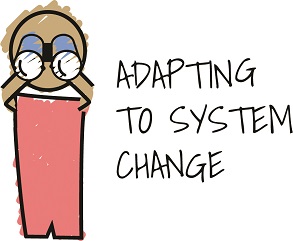Future-Focused Finance: next steps
Future-Focused Finance (FFF) has become part of the everyday language of the NHS finance profession in England and, to an extent, some clinicians. But, with the Finance Leadership Council (FLC) recently extending the programme to 2022, and redeveloping its own strategy, the time is right to look again at FFF’s aims and how these will be delivered.
The FLC set up FFF in 2014 to help provide NHS finance professionals and the NHS as a whole with the skills needed to help the service transform, deliver better value and recruit and retain staff.
With its ‘Making people count’ tagline, FFF gained ground quickly, particularly through its value makers – local champions of FFF’s aims – publications and toolkits.
It set out four strengths typical of a modern finance professional, a decision-making framework, and a method for examining value in back-office functions. Many finance directors signed up to its aims through a finance director declaration.
Working closely, FFF, the HFMA and the Finance Skills Development network (FSD – now the Skills Development Network or SDN) used existing networks to grow. And in 2015 the three organisations established a foundation to secure the aims and objectives of FFF in the longer term.
The HFMA is the programme’s prime strategic partner, contributing resources in the form of secretariat support and hosting FFF budgets and contracting.
Originally, FFF had six action areas: Great place to work; Skills and strengths; Close partnering; Best possible value; Efficient processes and systems; and Foundations for sustained improvement.
The extension of the programme prompted senior responsible officers (SROs) to review their action areas, leading to refreshed themes. Perhaps more importantly, there was a desire for the foundation to play a more active role in the development of FFF and ensure that FFF and SDN were working much more closely to deliver the FLC’s requirements. Currently there are no plans to integrate FFF and SDN.
These requirements have been laid out in the FLC’s new strategy, which outlines six objectives:
- Improve equality of access and diversity – giving equal access to all who have or are interested in a career in NHS finance
- Build resilience – across individuals, teams and the wider NHS finance function. This will also include talent management, including professionals at the mid-point of their careers, particularly where they are impacted by mergers or changing roles
- Measure consistently and provide evidence of function standards – including the roll-out of accreditation to ensure high standards in staff development, efficient transacting and working environment
- Commit function-wide to staff development – recognising that work must be done in some areas to ensure commitment to staff development is consistent nationally. FLC is committed to ensuring finance directors lead staff development, including developing finance skills in non-finance staff
- Grow talent and leaders – by developing networks for staff at all levels and underpinning this with tools showing different career routes and opportunities
- Drive value – by supporting finance departments to improve outcomes or reduce the use of resources in their local health economies. The finance function should also focus on patient care using value-based decision-making during system change and increased pressure.
- These objectives have helped to shape the new FFF themes – essentially, this is a refresh rather than a reboot of FFF’s work. The six action areas will now be replaced with five new themes. Much of the work carried out in previous action areas will continue to be developed in the new themes, although Foundations for sustained improvement – an action area that covered programmes underpinning the work of FFF – has now been incorporated into the everyday work of the FFF team.
The themes are:
Culture
Led by: Loretta Outhwaite, deputy chief officer, Isle of Wight CCG
In terms of the old FFF action areas, Culture comes closest to the Great place to work action area. However, as well as promoting a working environment where all staff can fulfil their potential, it also means building resilience in both individuals and the function as a whole. This means recognising that good performance is as much about wellbeing as technical ability and that good organisational culture is essential to the delivery of excellent patient care.
There are four workstreams, which will play a key part in achieving FFF’s strategic aims in this theme:
- Diversity, led by Edward John, director of operational finance at Frimley Health NHS Foundation Trust, will focus on exploring, through ‘safe-house’ discussions, personal experiences in relation to equality and diversity, to inform the projects for the year.
- Accreditation, led by David Ellcock, FFF programme director, will continue to promote accreditation and supporting organisations through the process.
- Finance and clinical educators, led by AK Maheswaran, consultant anaesthetist
- at University Hospitals Leicester NHS
- Trust, and Value makers, led by Suzanne Robinson, director of finance, performance and digital at North Staffordshire
Combined NHS Trust. This workstream will build on the success of their networks, to attract more members, hold frequent events and produce new animations to demystify more NHS finance topics.
Wellbeing and resilience is a brand new FFF workstream, which will be established over the coming months.
FFF opportunity
Ms Outhwaite plans to step down in the autumn from her FFF role, which she describes as ‘incredibly positive, exciting and inspiring’, so FFF is looking for a new finance leader to take the Culture theme forward. If you are a finance director/chief finance officer and would like to learn more about role, email [email protected] or [email protected]
Workforce and leadership
Led by: Claire Yarwood, chief finance officer, Manchester Health and Care Commissioning
‘This workstream brings together programmes and tools to support talent development, create networks for development and support and most importantly identify skills and behaviours we will need for the workforce of the future and hopefully attract the brightest young people we can recruit,’ Ms Yarwood says.
It is closely aligned with the previous Skills and strengths action area and includes workstreams such as the senior talent programme, career stories, the characteristics framework, positive psychology and promoting NHS finance careers.
‘I am passionate about supporting the development of finance staff across the NHS and, in the future, social care,’ says Ms Yarwood. ‘I have grown through the system and been lucky enough to benefit from FSD courses, good mentors, coaches and sponsors and would not be in the position today without the support of senior finance directors over the years. It is absolutely critical in this time of shrinking resources and changing environments that we are able to recruit and keep the best staff possible and ensure that they have skills and experiences to improve services for patients and the population.’
She adds: ‘I am really pleased to see staff who have worked for me previously develop and attain senior posts. I have loved the role of SRO for value makers, ensuring we are encouraging staff to network, develop relationships and share good practice.
‘My career story has been useful to help others determine a career path, enable them to develop resilience or provide support in finding a new way forward. By sharing our stories others can see a way forward when perhaps career paths are not clear for them.’
Engagement and development
Led by: Simon Worthington, finance director, Leeds Teaching Hospitals NHS Trust
This theme shares a lot of elements of the Close partnering workstream – seeking to develop finance knowledge across organisations and not just for those working in NHS finance departments.
A number of programmes are included, such as the four strengths, finance for clinicians and mentoring and coaching.
‘I am delighted to have the opportunity to lead the Engagement and development theme,’ Mr Worthington says. ‘It’s very early days for me having only agreed to take this one recently but I am clear that:
Clinical engagement and leadership on getting the best value for the NHS pound is absolutely vital. I will look to build on the great work that has gone before under the leadership of Sanjay Agrawal and AK Maheswaran, while working with AK and others to generate new ideas.
All NHS finance staff round the country deserve access to the very best finance skills development. The more skills we have, the better we can support clinicians and managers to get the best value out of the NHS pound. I will want to encourage the best to be available for everyone.
‘I will engage with as many people as possible on what we should be doing to help. I want to work closely with the value maker community in doing this. Most of all, I am sure this is going to be a lot of fun and rewarding,’ Mr Worthington adds.
Efficiency and value
Led by: Adrian Snarr, director of financial control, NHS England
This theme will look at promoting better outcomes and more efficient use of resources in ways where achieving one does not compromise the other. It will look at shared services and where system-wide change can lead to benefits for all parties and better value for taxpayers.
Much of the work of the former Best possible value and Efficient processes and systems action areas will be incorporated into this theme. These action areas previously developed practical tools to ensure organisations as a whole and finance functions in particular delivered maximum value.
For example, Best possible value produced a decision-making tool to encourage value-based decision making. And Efficient processes and systems developed tools to benchmark the efficiency of an NHS organisation’s financial systems.
It will include work on the Quality Service Improvement and Redesign programme, efficient transacting and process maps.
Adapting to system change
Led by: Caroline Clarke, group chief finance officer and deputy chief executive, Royal Free London NHS Foundation Trust, and Richard Alexander, chief financial officer, Imperial College Healthcare NHS Trust
This is a new theme and, although it is still early days, it could focus on ensuring the finance system can support emerging new care models and other system developments. It could, for example, look at costing whole care pathways and system-wide risk management.
According to the FFF strategy, the theme will challenge perceptions of what can be achieved, as well as the pace and scale at which it can be done. It will look at how other sectors fared in embracing innovation while maintaining continuity of services.
‘This means reviewing change through the system lens, acknowledging the climate of financial deficit, to identify the right opportunities to deliver sustainable improvement even where this feels uncomfortable,’ says FFF.
‘This theme will be essential in identifying challenging objectives for delivery from 2020,’ it adds.
Related content
We are excited to bring you a fun packed Eastern Branch Conference in 2025 over three days.
This event is for those that will benefit from an overview of costing in the NHS or those new to costing and will cover why we cost and the processes.